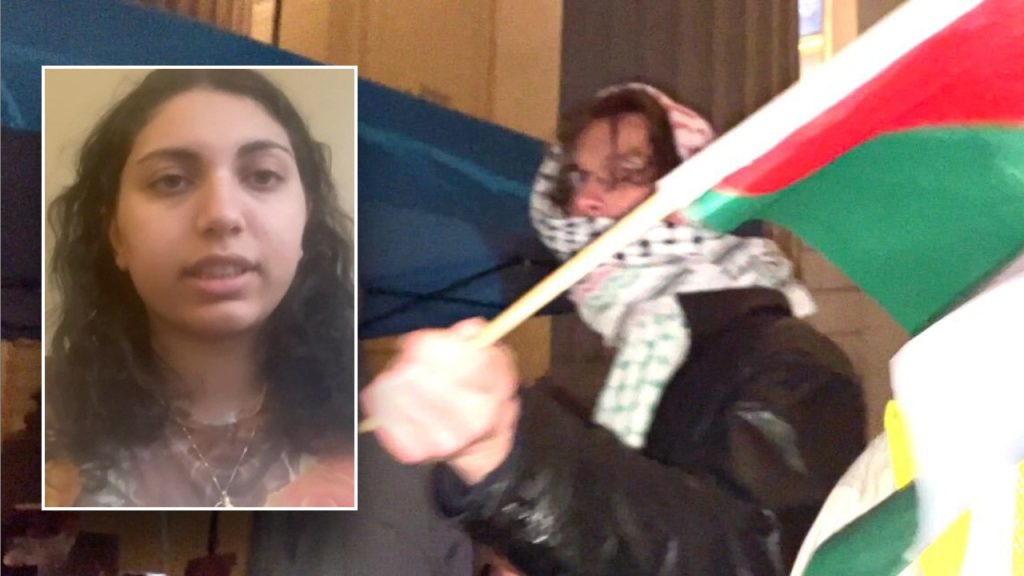A Jewish student journalist at Yale University, Sahar Tartak, reported being physically assaulted by a protester while covering an anti-Israel protest on campus. The protest had been building up over the previous week, with students setting up a tent encampment, creating a memorial to a Palestinian terrorist, and constructing a mock F-16 covered in fake blood. The demonstration drew hundreds of students chanting slogans in support of the Palestinian cause. When Tartak attended the protest with a friend, they were instantly targeted by the crowd for being “identifiably Jewish.” She was surrounded, taunted, and eventually hit in the eye with a Palestinian flag by a protester wearing a keffiyeh, making it difficult for her to identify the assailant.
Despite trying to pursue the assailant, Tartak was blocked by the human blockade formed by the protesters. She reported the incident to the police, who called an ambulance for her and recommended she go to the hospital. Tartak believes that the escalation in violence is a direct result of the university’s lack of intervention or enforcement during these demonstrations. She highlighted the importance of understanding that violence is at the core of the movement, directed at Jewish people and Western ideologies. Tartak condemned the protests as “mob violence” and expressed concern that without significant action, these incidents could become more common and escalate further, potentially leading to dangerous consequences.
The incident at Yale University occurred following similar protests at Columbia University, where demonstrators were heard shouting pro-Hamas slogans and resulted in over a hundred arrests. The protests across college campuses have been sparked by Israel’s offensive in Gaza, which was a response to a previous assault by Hamas that resulted in numerous casualties. The pro-Palestinian demonstrations have gained traction, with students expressing solidarity with Gaza and condemning Israeli military actions. Despite the differing casualty figures reported by Gaza’s Health Ministry and Israel, the violence has caused a significant backlash and sparked debates on college campuses across the country.
Tartak’s experience at the protest sheds light on the growing tensions and violence surrounding the Israeli-Palestinian conflict on university campuses. The lack of intervention by administrators and campus police has allowed these demonstrations to escalate, leading to physical assaults and threats against students. The wave of protests has sparked concerns about the safety and security of Jewish students, as well as the potential for further violence if action is not taken to address these issues. The situation presents a challenging and complex dynamic that requires careful consideration and decisive action to prevent further escalation and ensure the safety and well-being of all students on campus.
The incident at Yale University underscores the broader challenges and implications of the Israeli-Palestinian conflict on college campuses, where tensions often run high and differences in opinion can lead to volatile situations. The protests and demonstrations serve as a platform for students to voice their support for various causes and ideologies, but they also highlight the need for effective communication, understanding, and respect among diverse groups. The incidents at Columbia and Yale University serve as reminders of the importance of upholding free speech, peaceful demonstrations, and ensuring the safety and security of all students on campus. As the situation continues to evolve, it is crucial for university administrators, law enforcement, and students to work together to address these challenging issues and promote a safe and inclusive environment for all members of the campus community.


